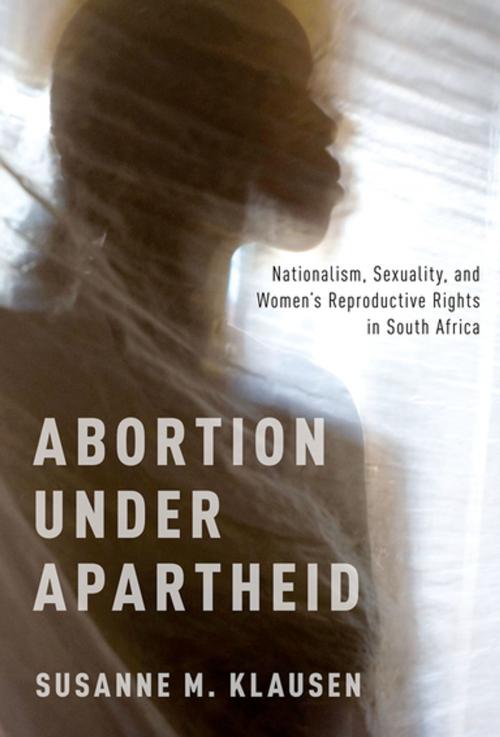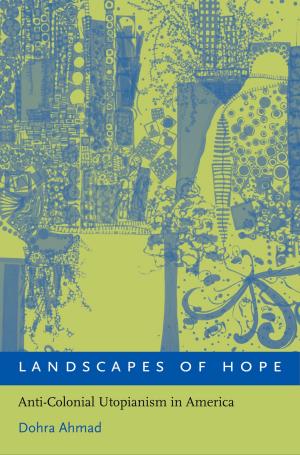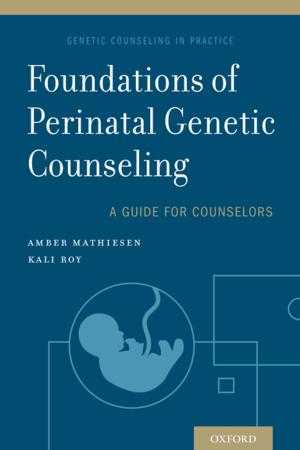Abortion Under Apartheid
Nationalism, Sexuality, and Women's Reproductive Rights in South Africa
Nonfiction, History, Africa, South Africa, Health & Well Being, Medical, Reference| Author: | Susanne M. Klausen | ISBN: | 9780190269395 |
| Publisher: | Oxford University Press | Publication: | October 9, 2015 |
| Imprint: | Oxford University Press | Language: | English |
| Author: | Susanne M. Klausen |
| ISBN: | 9780190269395 |
| Publisher: | Oxford University Press |
| Publication: | October 9, 2015 |
| Imprint: | Oxford University Press |
| Language: | English |
Abortion Under Apartheid examines the politics of abortion in South Africa during the apartheid era (1948-1990), when termination of pregnancy was criminalized. It analyzes the flourishing clandestine abortion industry, the prosecution of medical and "backstreet" abortionists, and the passage in 1975 of the country's first statutory law on abortion. Susanne M. Klausen reveals how ideas about sexuality were fundamental to apartheid culture and shows that the authoritarian National Party government - alarmed by the spread of "permissiveness" in white society - attempted to regulate white women's reproductive sexuality in the interests of maintaining white supremacy. A major focus of the book is the battle over abortion that erupted in the late 1960s and early 1970s, when doctors and feminists, inspired by international developments, called for liberalization of the colonial-era common law that criminalized abortion. The movement for legal reform spurred a variety of political, social, and religious groups to grapple with the meaning of abortion in the context of changing ideas about the traditional family and women's place within it. Abortion Under Apartheid demonstrates that all women, regardless of race, were oppressed under apartheid. Yet, although the National Party was preoccupied with denying young, unmarried white women reproductive control, black girls and women bore the brunt of the lack of access to safe abortion, suffering the effects on a shocking scale. At the heart of the story are the black and white girls and women who-regardless of hostility from partners, elders, religious institutions, nationalist movements, conservative doctors and nurses, or the government-persisted in determining their own destinies. Although a great many were harmed and even died as a result of being denied safe abortions, many more succeeded in thwarting opponents of women's right to control their capacity to bear children. This book conveys both the tragic and triumphant sides of their story.
Abortion Under Apartheid examines the politics of abortion in South Africa during the apartheid era (1948-1990), when termination of pregnancy was criminalized. It analyzes the flourishing clandestine abortion industry, the prosecution of medical and "backstreet" abortionists, and the passage in 1975 of the country's first statutory law on abortion. Susanne M. Klausen reveals how ideas about sexuality were fundamental to apartheid culture and shows that the authoritarian National Party government - alarmed by the spread of "permissiveness" in white society - attempted to regulate white women's reproductive sexuality in the interests of maintaining white supremacy. A major focus of the book is the battle over abortion that erupted in the late 1960s and early 1970s, when doctors and feminists, inspired by international developments, called for liberalization of the colonial-era common law that criminalized abortion. The movement for legal reform spurred a variety of political, social, and religious groups to grapple with the meaning of abortion in the context of changing ideas about the traditional family and women's place within it. Abortion Under Apartheid demonstrates that all women, regardless of race, were oppressed under apartheid. Yet, although the National Party was preoccupied with denying young, unmarried white women reproductive control, black girls and women bore the brunt of the lack of access to safe abortion, suffering the effects on a shocking scale. At the heart of the story are the black and white girls and women who-regardless of hostility from partners, elders, religious institutions, nationalist movements, conservative doctors and nurses, or the government-persisted in determining their own destinies. Although a great many were harmed and even died as a result of being denied safe abortions, many more succeeded in thwarting opponents of women's right to control their capacity to bear children. This book conveys both the tragic and triumphant sides of their story.















